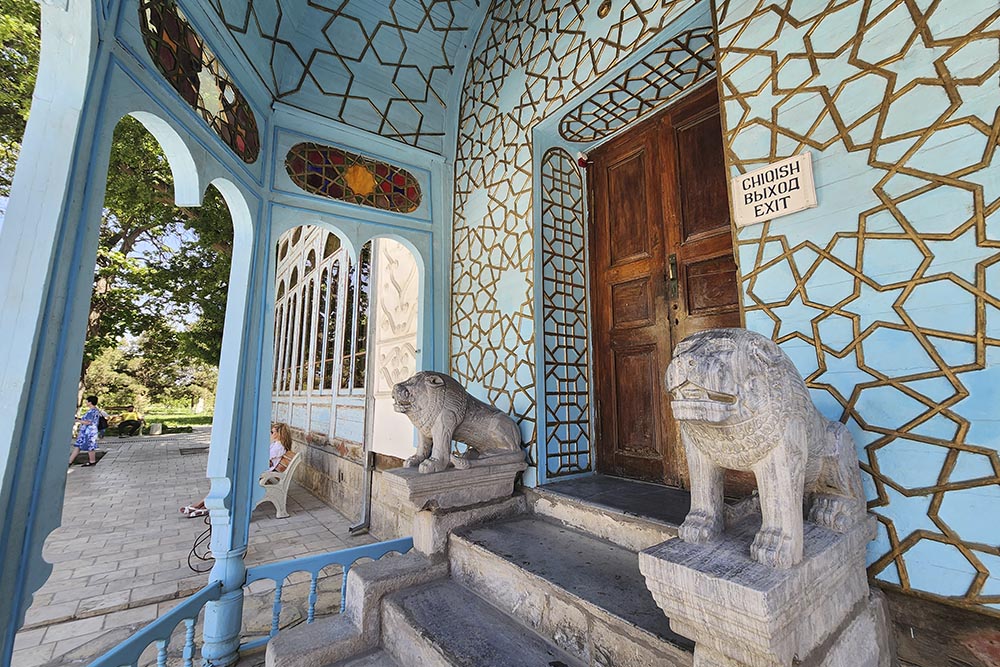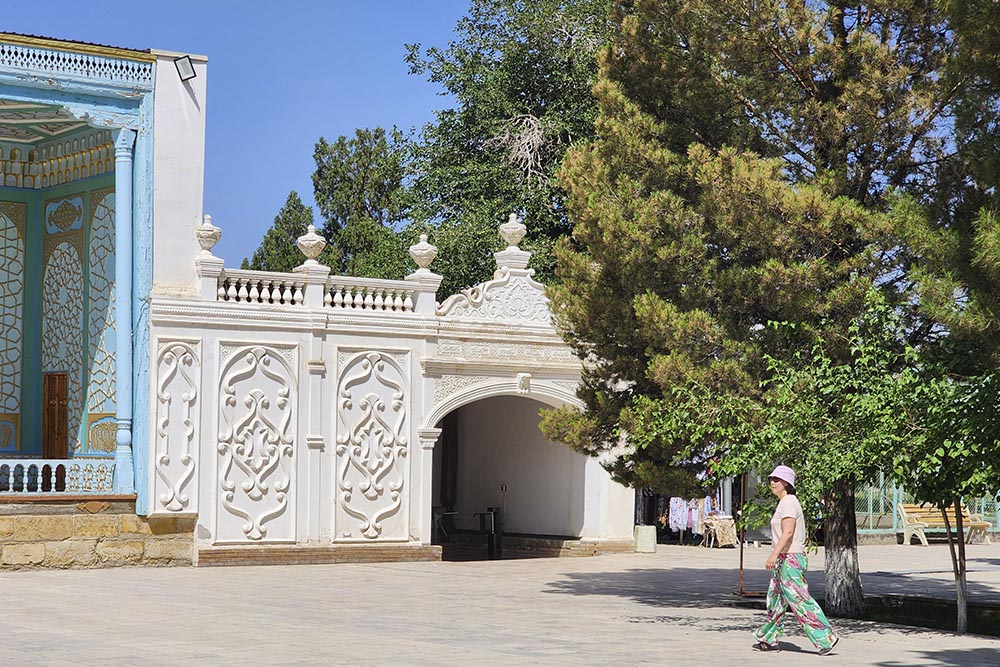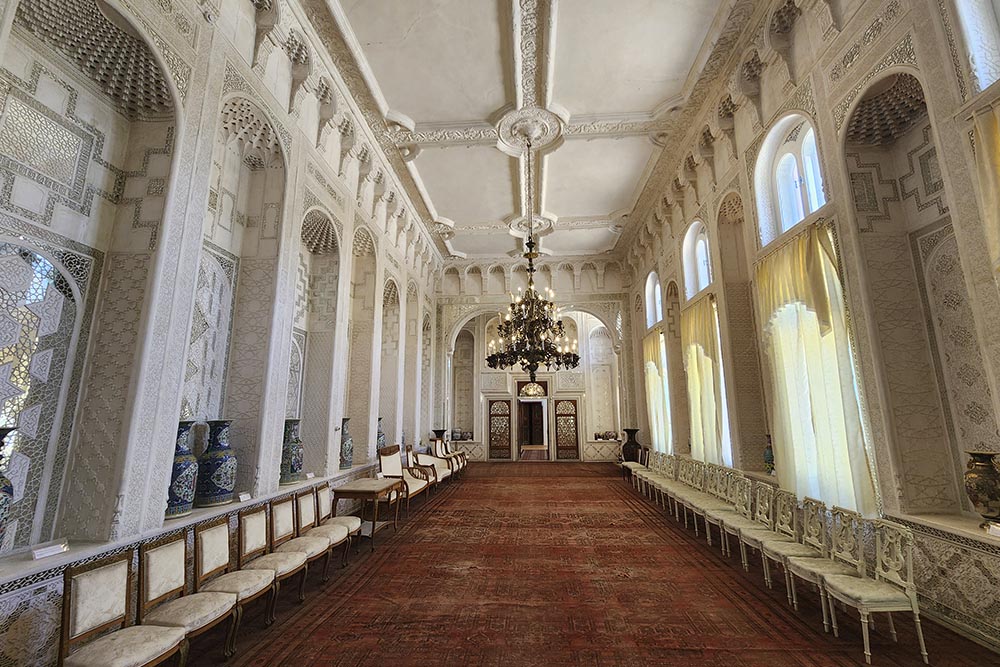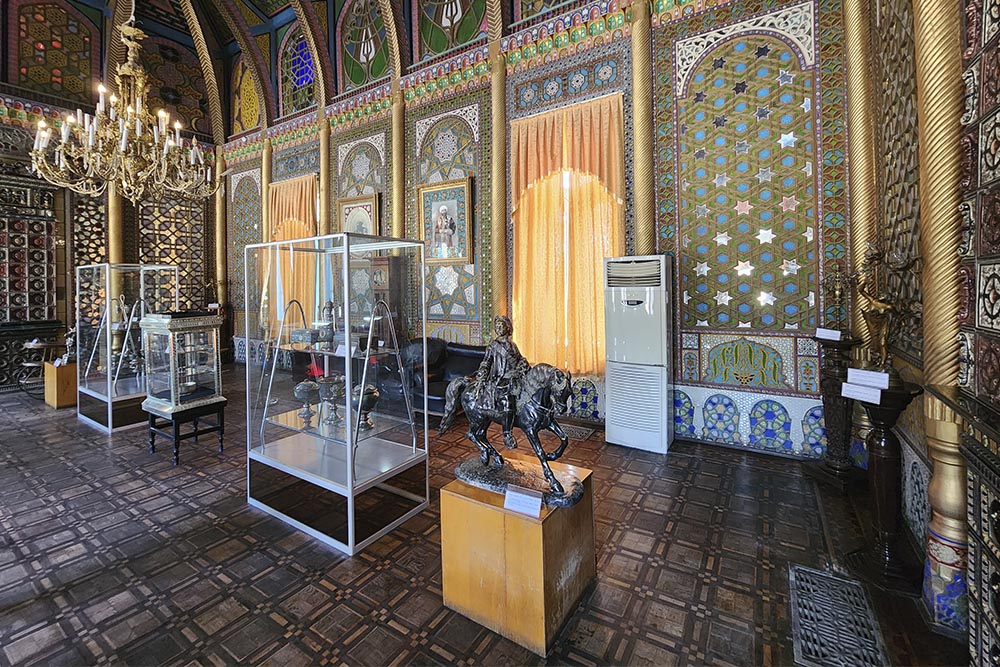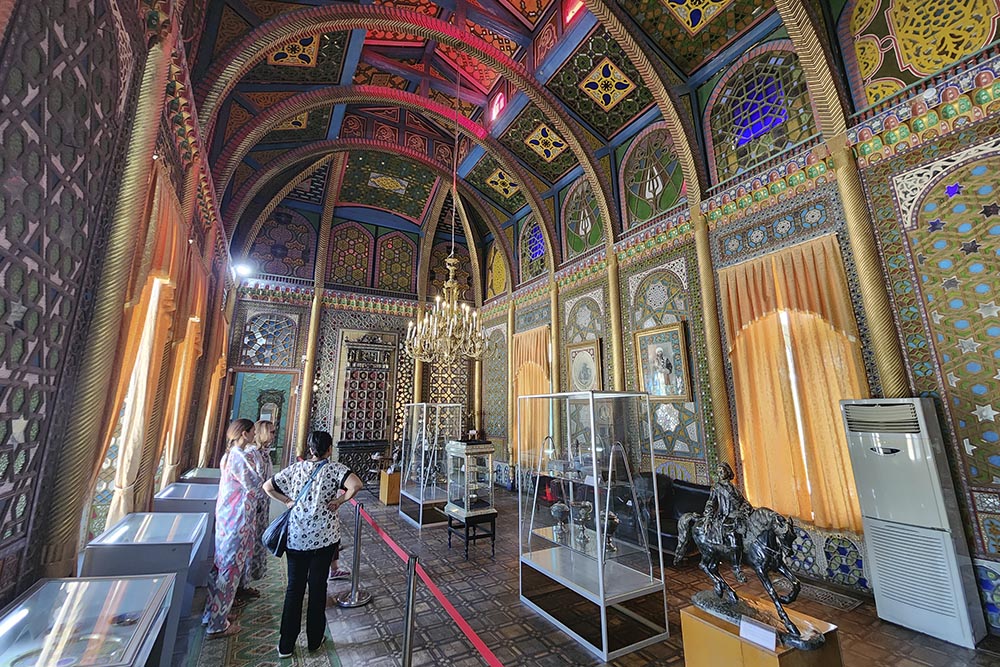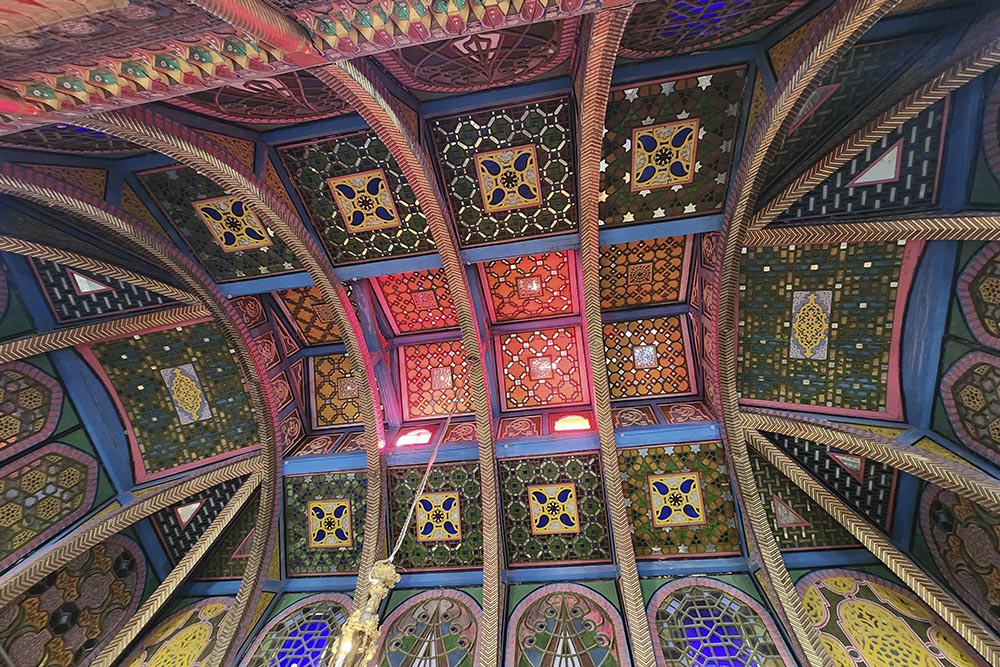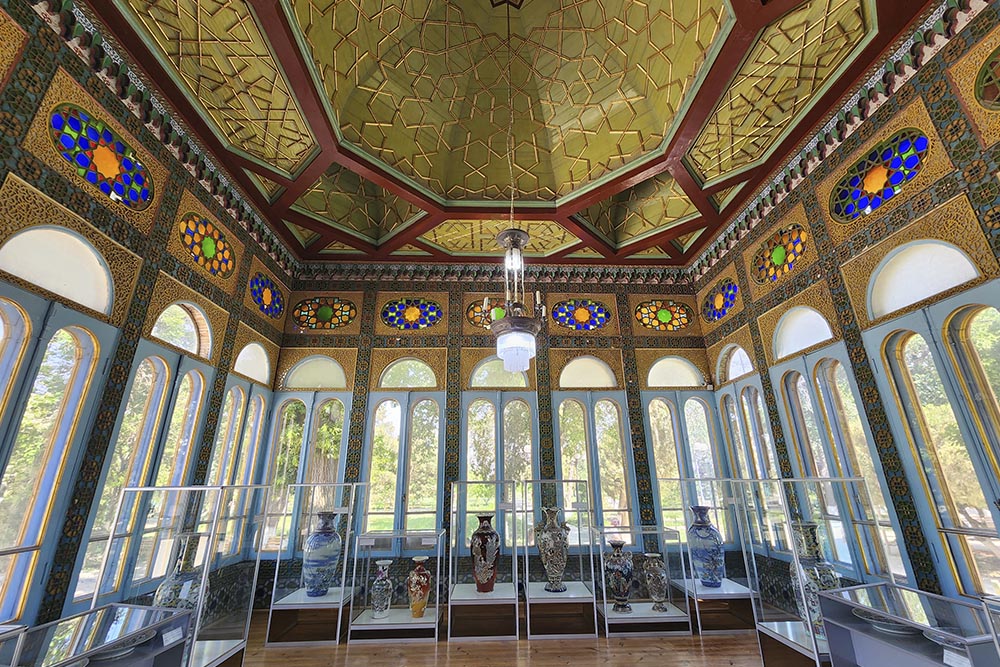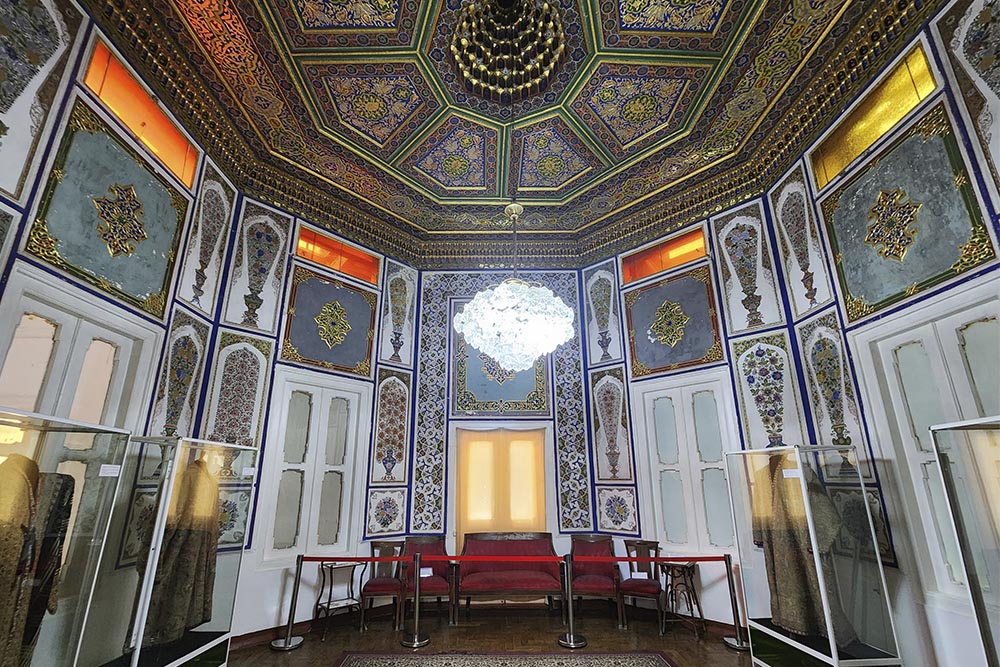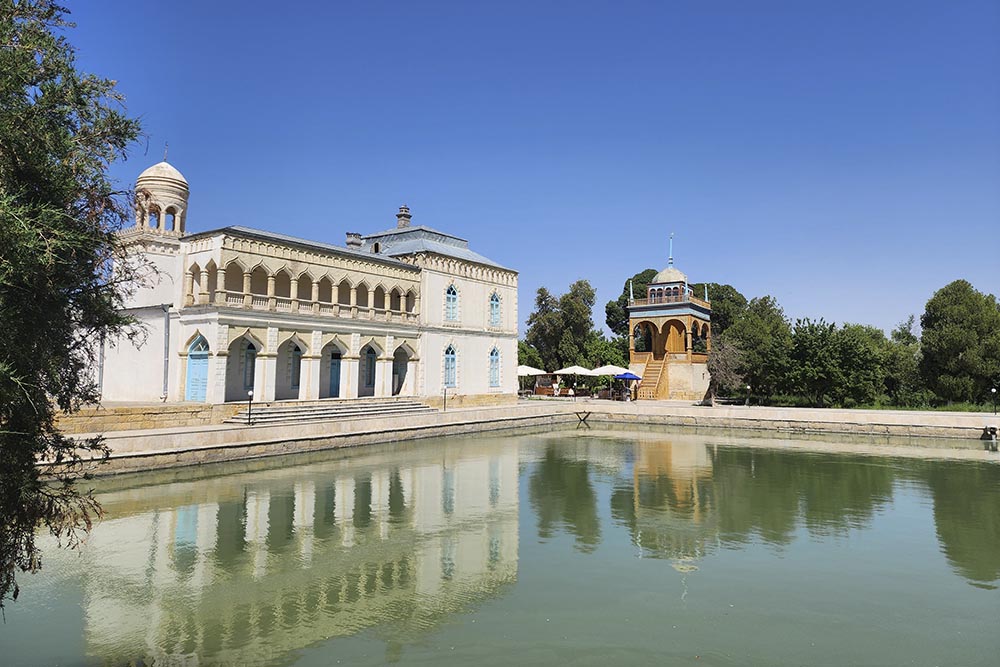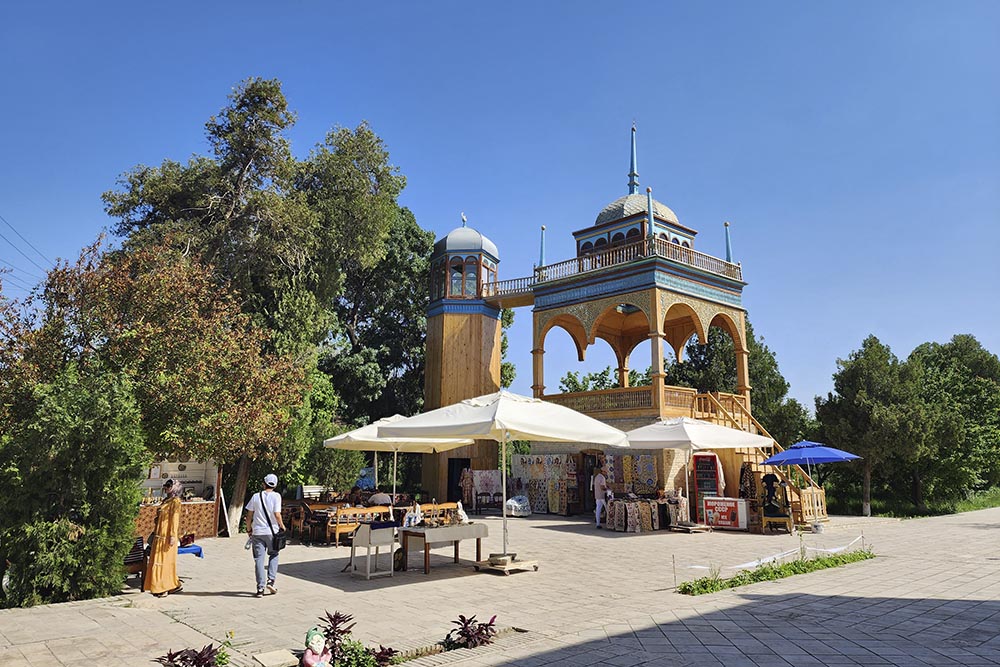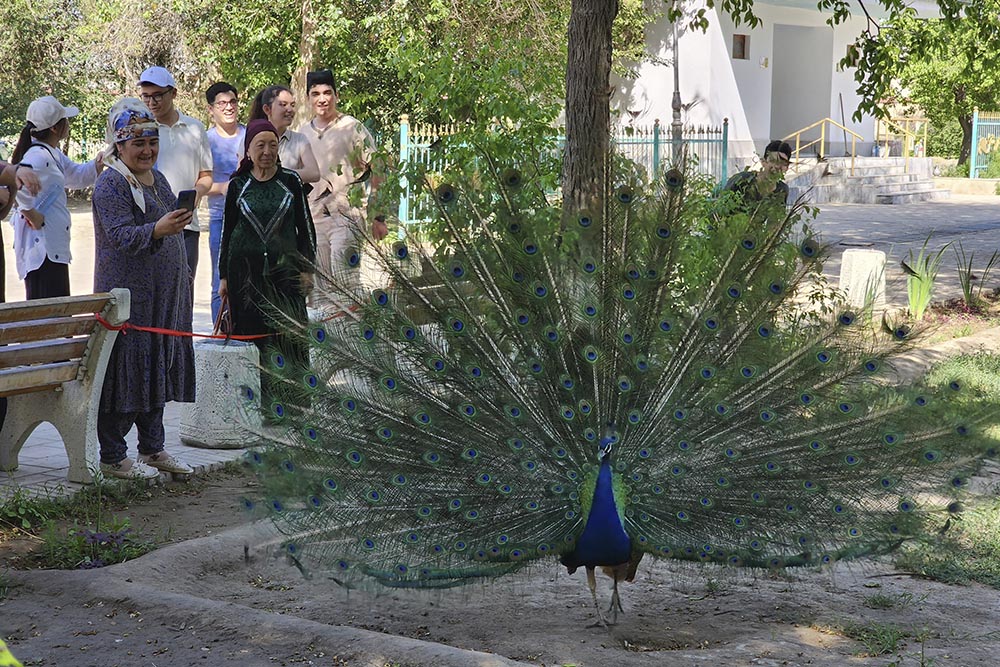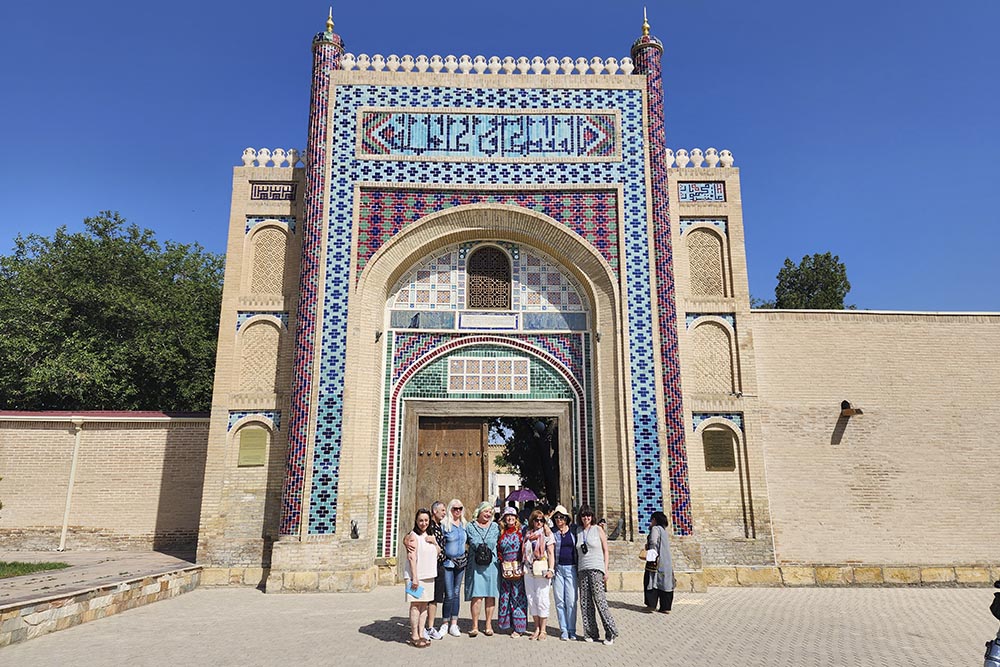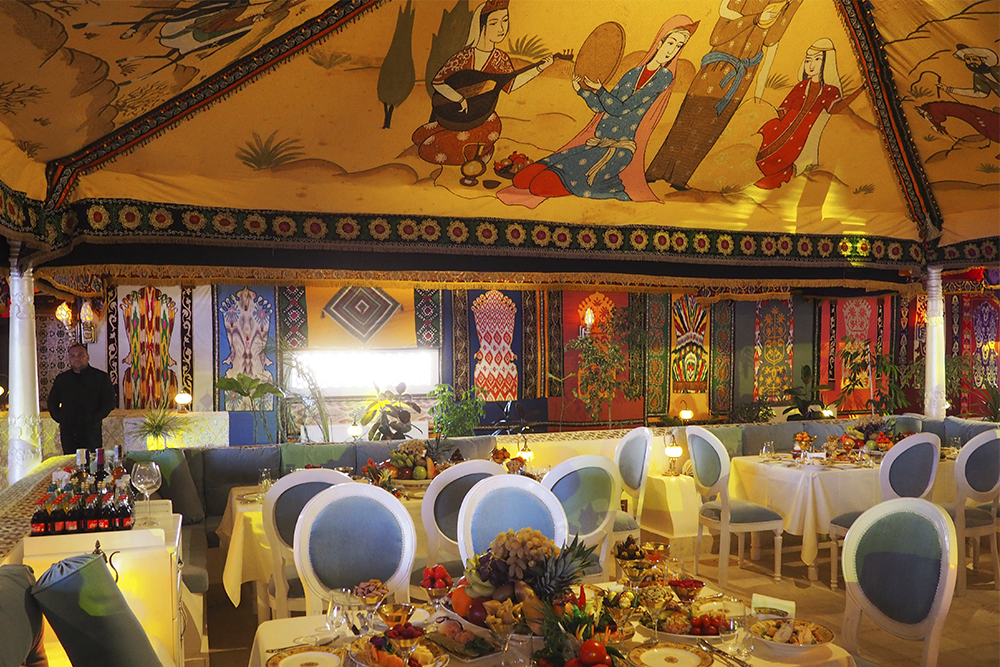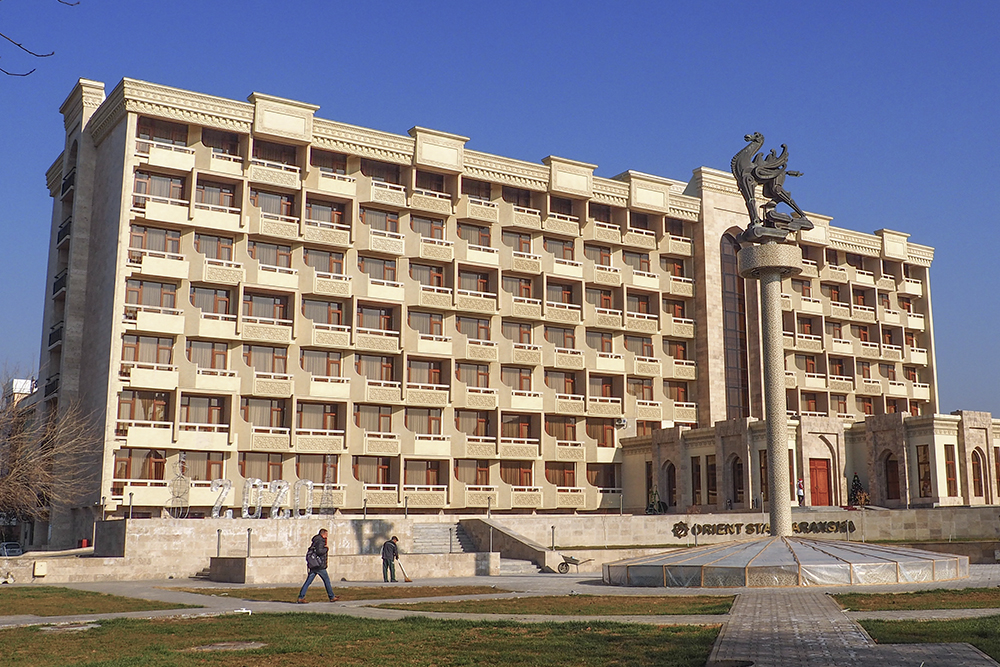The country palace of Sitorai Mohi-Khosa is situated 4 km north of Bukhara. The name of the palace can be translated as ‘palace similar to the stars and the moon’. The palace was a summer residence of the emirs (rulers of Bukhara). Its construction started in the late 19th century, when Emir Ahudkhan ordered to send the best masters of Bukhara to Russia (St Petersburg and Yalta) for adopting the methods used by Russian architects. The palace’s main entrance is decorated with mosaics of diverse colours and shades, which is not characteristic of Bukhara where various tinges of blue and green were usually used.
The palace’s layout is similar to the plan of the traditional Bukhara houses and is composed of three sections: the entrance, the outer court (for men) and the inner court (for women). The entrance is surrounded on all sides by the workshops of craftsmen who used to work there. Next to the palace is the traditional pond bordered by a one-storey building in the form of the letter L.
The architecture is a mixture of a European style and elements of the local building traditions. This can be explained by Emir Said Alimkhan having studied in Saint Petersburg for some time and by the participation of Russian architects in the construction of the palace. The Sitorai Mohi-Khosa includes an old palace constructed by the emir’s father Ahadkhan. This palace has an absolutely different style, layout and decoration. It had a harem for the emir’s wives and numerous concubines. The façade of the building is reflected, as in a mirror, in the water of the pond dug simultaneously with Ahadkhan"s palace.
A new palace built near the old one and consisting of several complexes and constructions is particularly valuable from the artistic aspect. The palace includes an entrance gateway in the form of a triumphal arch with crude mosaics, galleries with straight pillars encircling the court and a section of European architecture with a greenhouse in front of a large pool (1917-1918).
The main building of the palace consists of several reception halls and the emir’s private chambers. Among them is the famous white hall that was being built for two years (1912-1914) by a group of masters of 25-30 persons headed by the famous master Usto Shirin Muradov. Even today the white hall shines with dazzlingly white ganch covering the walls and ceilings.
Nowadays the palace is a museum with interesting exhibits, many of which are of high historic value.




